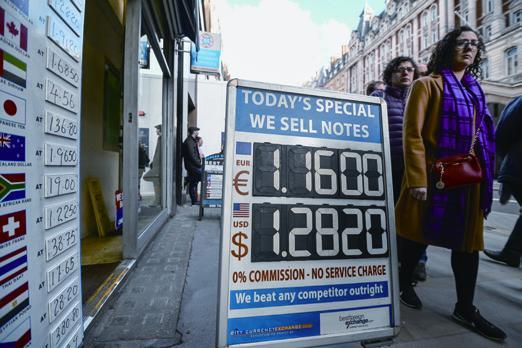Britain After Brexit
By Kerry Brown

On January 31, Britain exited the EU after being a member for 47 years. Rather than national celebrations, and a statement before a live crowd from Prime Minister Boris Johnson, the event itself was marked in an almost low-key way. After all, this was something which had been attempted two times before, under the prime ministership of Theresa May, and once under Johnson. Johnsons final securing of an agreement to exit from the British parliament this time was a direct result of his being able to secure a working majority in the December 12, 2019, election for the Conservative Party.
A contentious issue
Celebrations were muted not just because of the exhaustion the whole exit process has created. It is also due to the very clear fact that the British public are evenly divided between those who support what has happened, and those who vehemently oppose it. For a country accused of apathy because of increasingly low turnouts in elections a decade and a half ago, it seems through this contentious issue it has reconnected with its passions. Brexit has aroused a depth of emotion, for and against, unlike any other issue in modern times. This will not disappear because of what happened at the end of January. It is likely that for every person rejoicing that they have, in their own words, got their country back, there are as many who are grieving and feeling resentful and angry that they have lost theirs.
Johnson is a showman and an instinctive politician. In that sense at least he resembles Donald Trump. But he is also a very divisive figure. Despite his soothing talk about a period of healing now needing to begin, it is unlikely this will be a very easy thing for someone like him to preside over. This is despite the fact that moderates who opposed Brexit know that the bigger picture is at least now to do their best to either ameliorate some of the challenges that may come from this whole endeavor, or even to try to create opportunities from them.
But there is a very significant number who want Brexit to fail, and feel disenfranchised and, some, vengeful. One can safely say therefore that January 31 is not the end of the issue. Indeed, it is almost certainly the beginning of a complex new era.
Challenges ahead
The first landmark in this will be to attempt to do a trade deal with the EU by December 31 this year. Till then, the UK remains part of the customs union and other business and economic arrangements currently in place continue. Negotiation of this deal will be tough. The UK is a signifi cant economy, but small compared to the whole of the EU. Politicians like Johnson have promised great things will be possible and that Britain will be able to achieve a highly benefi cial outcome. The moment of truth when a deal in outline is produced later this year will be a fraught one. This will be when British people know the kind of future they are going to enjoy and on what terms they are going to be able to trade with a partner they are now part of but will soon be separated from.
A similar process will need to be undertaken with the U.S. The EU and the U.S. are by far and away the largest of Britains current partners. For all the warm talk, the simple fact is that neither agreement will be easy. Both are with formidable adversaries in terms of negotiating skills. Johnson is not a details man, so this will not be a strong card for him. The deal he will have to sign will be one he will have to try to sell to the public, but the fl uffy words he has produced up to now will be unlikely to get very far.
It will offer for the first time tangible evidence of what Britain can really achieve in its post-EU world. It is inevitable some aspirations and expectations will be broken. It is also very likely that reality will fall far short of what many people wanted. The question is by how far.

UK-China relationship
Part of Johnsons vision will be that post-Brexit Britain will be Global Britain. It will be able to find a new set of relationships outside of the main ones it has had through the EU. These will include places like China, India and emerging markets in the Asian, African and Latin American regions. They will also include re-establishing closer connections with the Commonwealth group of countries. While such a vision is laudably ambitious, there have to be questions about how much can really be achieved very quickly.
China is a good example. It is likely to be the worlds largest economy sometime in the next decade. In theory, therefore, it should stand as an absolute priority. Current levels of investment and trade between Britain and China are relatively small. There should be space for plenty of growth and expansion.
The rhetoric of the Johnson government about Global Britain is one thing, but the reality underpinning this is very different. A senior cabinet minister, when asked at a conference late last year in the UK what they wanted from China, gave the unsettling answer “Nothing in particular.” It is clear that the current leading politicians in Britain do not understand a huge amount about China. That is fair enough. After all, they cover a lot of issues, and they are already burdened by the need to know about a myriad of other things.
What is less forgivable is their lack of awareness of what they might want from China, of thinking about China playing a greater role in Britains economic and geopolitical life.
Up till now, the UKs stance on China has been a largely pragmatic one. Huawei, a worldwide leading 5G equipment provider, has been granted space, at least in principle, to work here in ways that has proved next to impossible in the U.S. and Australia. Chinese student numbers have skyrocketed in the last two years. But parliamentary reports, and some of the material issuing from respected think tanks in the UK, increasingly take a strident tone toward a country meant to be emerging as the UKs most signifi cant new opportunity.
In theory, Brexit Britain is in a place where it can remake its relations with China in a more bespoke, more ambitious manner. In practice, at the moment at least everything is undecided and unclear. This is hardly surprising in view of the continuing uncertainty in almost every other area of policy. But at some point in the coming few months, the UK will need to have leaders who are willing to stick their necks out and proactively seek a new kind of relationship with China—or, at the very least, say that this is what they want to achieve in the coming years.
At the moment, there is little sign that such a leadership, on this issue at least, actually exists. It might begin to appear as people, no longer distracted by the simple act of politically exiting the EU, start to work out the reality of the countrys new position. Having a deeper thought about Chinas role in this is going to be key. This is not an issue that can just be left on the shelf. It is either that there will be a broader, more ambitious relationship with the worlds largest emerging economic power, or a stepping away from it. Simple passivity and indecision will not do. That, alas, is what has been seen so far. It is now utterly unsustainable.

